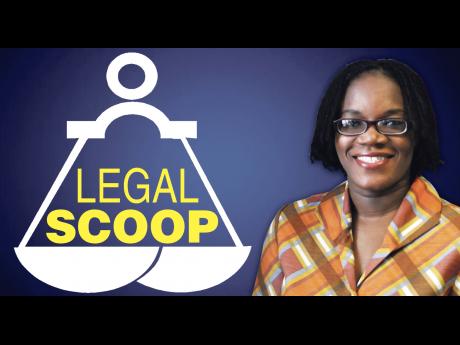Dispelling the myths, lies and half-truths - Magisterial recounts and election petitions
We have just experienced another general election, and in spite of the relatively low voter turnout, one can still say, with a great degree of confidence, that the democratic process is alive and well in Jamaica. Quite apart from the low voter turnout, another striking feature of this election was the close margin of victory.
Hopefully, the best team has won and the economy will tell the story in the next three to five years.
On election night 33 seats were declared for the Jamaica Labour Party (JLP) and 30 for the People's National Party (PNP). By the time of writing, the PNP's candidate in South East St Mary, Dr Winston Green, had reclaimed his seat from the JLP's Dr Lloyd Dunn, after the official counting of the ballots.
There appears to be some confusion about what an official count means. I heard many persons proclaiming that it was the PNP that had requested the recount of the South East St Mary seat and others.
However, Section 45 of the Representation of the People Act makes it mandatory for the returning officer for each constituency to carry out the final counting of the ballots in the presence of the candidates or their appointed observers.
If at the time of the final count none of the candidates or their representatives are present, then the returning officer shall secure the presence of at least two electors and they shall remain present until the counting is complete.
At the completion of the final count, the returning officer shall declare the candidate with the majority the winner and shall immediately notify him or his representative in writing, and if they are absent, immediately send the notice by registered post.
Interestingly, Section 45 also makes provisions for what should happen in the event each candidate records the same number of votes. In such a case, the returning officer shall have the casting vote.
SECTION 47 OF THE ACT
Under Section 47 of the act, if within four days after the day on which the returning officer has declared a candidate elected, it is made to appear, on the affidavit of a credible witness, to a resident magistrate, that a returning officer in counting the votes has:
a) Improperly counted or
b) Improperly rejected any ballot papers or
c) Has made an incorrect addition of the number of ballots cast for any candidate.
If the applicant deposits within the four-day period the sum of $40 as security for the costs of the candidate declared elected, the resident magistrate shall appoint a time within four days after the receipt of the affidavit to recount the said votes.
Now it appears that the resident magistrate must stop all he is doing and commence the recount, and he should not stop until it is complete.
Section 48 (1) of the act says, "The resident magistrate shall proceed to make such recount by recounting all the votes or ballot papers returned by the returning officer, and shall open the sealed envelopes containing the used and counted, the unused, the rejected, and the spoilt ballot papers."
It goes on to say at Subsection (4), "The resident magistrate shall, as far as practicable, proceed continuously, except on Sunday, with the recount, allowing only necessary adjournments for rest and refreshment, and excluding the hours between six o'clock in the afternoon and nine in the succeeding forenoon."
It follows, therefore, that where necessary, counting must continue on Saturdays until complete.
MAGISTERIAL RECOUNT
If after the magisterial recount there is again a tie, the returning officer shall again have the casting vote. Section 48 (8) says: "In case of an equality of votes the returning officer, notwithstanding that he may have already voted pursuant to subsection (8) of Section 45, shall have and cast another or deciding vote."
If there is still dissatisfaction at the end of the magisterial recount, the Electoral Petition Act allows for the filing of a petition in the Supreme Court.
Section 3 allows for a petition to be presented by the clerk of the House of Parliament, the attorney general, or any other person. The petition shall be presented to the Registrar of the Supreme Court within 21 days of the date of the candidate being returned.
The trial of the petition shall be done in open court and must be presided over by the chief justice or a puisne judge nominated by the chief justice after consultation with the other judges.
The trial of the petition shall commence within 90 days after the filing of the petition and shall continue on every lawful day therefrom until it is completed.
Under Section 22 (1) of the Election Petitions Act, an appeal shall lie from the determination by a judge of the Supreme Court on a petition under Section 20 to the Court of Appeal, whose decision shall be final and conclusive to all intents and purposes.
- Shena Stubbs is an attorney-at-law and legal commentator. Send feedback to shena.stubbs@gleanerjm.com, Twitter:@shenastubbs


